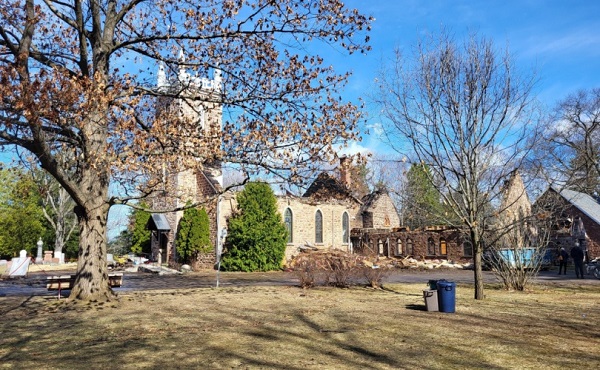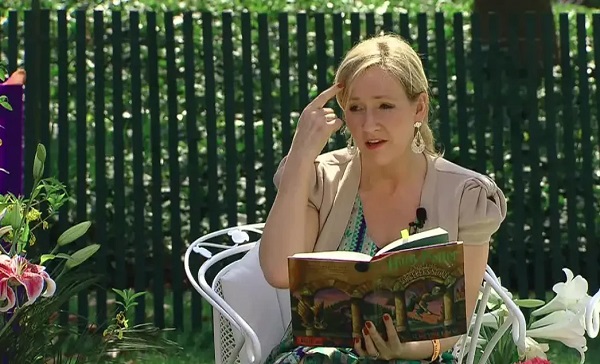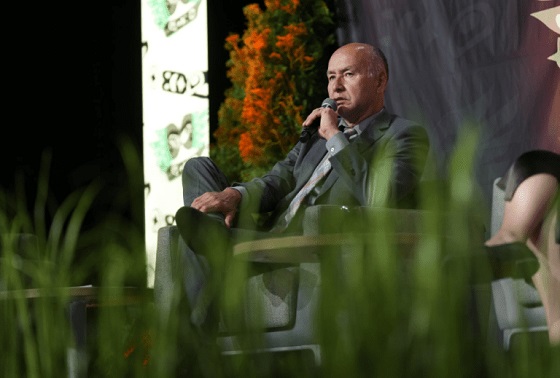Crime
The Left Thinks Drug Criminalization Is Racist. Minorities Disagree

[This article was originally published in City Journal, a public policy magazine and website published by the Manhattan Institute for Policy Research]
By Adam Zivo
A Canadian poll finds that racial minorities don’t believe drug enforcement is bigoted.
Is drug prohibition racist? Many left-wing institutions seem to think so. But their argument is historically illiterate—and it contradicts recent polling data, too, which show that minorities overwhelmingly reject that view.
Policies and laws are tools to establish order. Like any tool, they can be abused. The first drug laws in North America, dating back to the late nineteenth and early twentieth centuries, arguably fixated on opium as a legal pretext to harass Asian immigrants, for example. But no reasonable person would argue that laws against home invasion, murder, or theft are “racist” because they have been misapplied in past cases. Absent supporting evidence, leaping from “this tool is sometimes used in racist ways” to “this tool is essentially racist” is kindergarten-level reasoning.
Yet this is precisely what institutions and activist groups throughout the Western world have done. The Drug Policy Alliance, a U.S.-based organization, suggests that drug prohibition is rooted in “racism and fear.” Harm Reduction International, a British NGO, argues for legalization on the grounds that drug prohibition entrenches “racialized hierarchies, which were established under colonial control and continue to dominate today.” In Canada, where I live, the top public health official in British Columbia, our most drug-permissive province, released a pro-legalization report last summer claiming that prohibition is “based on a history of racism, white supremacy, paternalism, colonialism, classism and human rights violations.”
These claims ignore how drug prohibition has been and remains popular in many non-European societies. Sharia law has banned the use of mind-altering substances since the seventh century. When Indigenous leaders negotiated treaties with Canadian colonists in the late 1800s, they asked for “the exclusion of fire water (whiskey)” from their communities. That same century, China’s Qing Empire banned opium amid a national addiction crisis. “Opium is a poison, undermining our good customs and morality,” the Daoguang emperor wrote in an 1810 edict.
Today, Asian and Muslim jurisdictions impose much stiffer penalties on drug offenders than do Western nations. In countries like China, Saudi Arabia, Iran, Singapore, and Thailand, addicts and traffickers are given lengthy prison sentences or executed. Meantime, in Canada and the United States, de facto decriminalization has left urban cores littered with syringes and shrouded in clouds of meth.
The anti-drug backlash building in North America appears to be spearheaded by racial minorities. When Chesa Boudin, San Francisco’s former district attorney, was recalled in 2022, support for his ouster was highest among Asian voters. Last fall, 73 percent of Latinos backed California’s Proposition 36, which heightened penalties for drug crimes, while only 58 percent of white respondents did.
In Canada, the first signs of a parallel trend emerged during Vancouver’s 2022 municipal election, where an apparent surge in Chinese Canadian support helped install a slate of pro-police candidates. Then, in British Columbia’s provincial election last autumn, nonwhite voters strongly preferred the BC Conservatives, who campaigned on stricter drug laws. And in last month’s federal election, within both Vancouver and Toronto’s metropolitan areas, tough-on-crime conservatives received considerable support from South Asian communities.
These are all strong indicators that racial minorities do not, in fact, universally favor drug legalization. But their small population share means there is relatively little polling data to measure their preferences. Since only 7.6 percent of Americans are Asian, for example, a poll of 1,000 randomly selected people will yield an average of only 76 Asian respondents—too small a sample from which to draw meaningful conclusions. You can overcome this barrier by commissioning very large polls, but that’s expensive.
Nonetheless, last autumn, the Centre for Responsible Drug Policy (a nonprofit I founded and operate) did just that. In partnership with the Macdonald-Laurier Institute, we contracted Mainstreet Research to ask over 12,000 British Columbians: “Do you agree or disagree that criminalizing drugs is racist?”
The results undermine progressives’ assumptions. Only 26 percent of nonwhite respondents agreed (either strongly or weakly) that drug criminalization is racist, while over twice as many (56 percent) disagreed. The share of nonwhite respondents who strongly disagreed was three times larger than the share that strongly agreed (43.2 percent versus 14.3 percent). These results are fairly conclusive for this jurisdiction, given the poll’s sample size of 2,233 nonwhite respondents and a margin of error of 2 percent.
Notably, Indigenous respondents seemed to be the most anti-drug ethnic group: only 20 percent agreed (weakly or strongly) with the “criminalization is racist” narrative, while 61 percent disagreed. Once again, those who disagreed were much more vehement than those who agreed. With a sample size of 399 respondents, the margin of error here (5 percent) is too small to confound these dramatic results.
We saw similar outcomes for other minority groups, such as South Asians, Southeast Asians, Latinos, and blacks. While Middle Eastern respondents also seemed to follow this trend, the poll included too few of them to draw definitive conclusions. Only East Asians were divided on the issue, though a clear majority still disagreed that criminalization is racist.
As this poll was limited to British Columbian respondents, our findings cannot necessarily be assumed to hold throughout Canada and the United States. But since the province is arguably the most drug-permissive jurisdiction within the two countries, these results could represent the ceiling of pro-drug, anti-criminalization attitudes among minority communities.
Legalization proponents and their progressive allies take pride in being “anti-racist.” Our polling, however, suggests that they are not listening to the communities they profess to care about.
The Bureau is a reader-supported publication.
To receive new posts and support my work, consider becoming a free or paid subscriber.
Invite your friends and earn rewards
Crime
Pierre Poilievre says Christians may be ‘number one’ target of hate violence in Canada

From LifeSiteNews
Anti-Christian hate crimes are not properly documented in Canada, but media reports indicate a continuing wave of violence against churches.
Conservative leader Pierre Poilievre said Monday that Christians may be the “number one” target of hate crimes when asked how he would combat the eruption of attacks on churches in Canada.
“One hundred churches have been burned,” Poilievre said, according to a CBC News report. “Christians may be the number one group that is victims of hate-based violence. But, of course, it’s not politically correct to say that.”
“This anti-Christian hate has got to stop,” said Poilievre, referring to the arson crimes as “terrorist attacks.”
Catholic and Christian churches have seen a spike in arson attacks after a public narrative that Catholic priests had murdered children said to have been found in unmarked graves at the site of Canadian indigenous residential schools run by both the Catholic Church and other Christian churches.
The attacks have reached epidemic proportions. Last week, All Saints Ukrainian Orthodox Church, northeast of Edmonton, was destroyed after being set ablaze by a 23-year-old and a 26-year-old from Saddle Lake First Nation.
At least four other churches in Canada have been set afire this year, according to media reports, including a Catholic church in Saskatchewan, a joint Anglican-Lutheran church in Manitoba, a Greek Orthodox church that had been set afire three other times in recent years, and a Salvation Army church in Newfoundland.
Catholic churches in particular have seen a big spike in violence as compared with previous years, with a jump from 43 police-reported anti-Catholic crimes in 2020 to 155 in 2021, according to Statistics Canada data.
However, hard data on the incidence of overall anti-Christian attacks in Canada is not yet available because the currently cited data on anti-religion hate crimes in Canada does not account for non-Catholic Christian churches.
In recognition of this vacuum, the Evangelical Fellowship of Canada is planning to launch an anti-Christian hate crime tracker.
Poilievre ripped liberals for enabling the rash of church attacks, calling out their policies of reduced penalties for arson, their redirection of resources from police and border services to targeting farmers and hunters, and their “divisive” identity politics.
He said he would take the “opposite approach” if elected prime minister, including “tougher laws” for hate crime perpetrators and redirecting resources away from targeting “sportshooters” and toward police services.
“Because frankly, Canadians of all faiths, including Christians, deserve to worship in peace,” he said.
Crime
Canada’s safety minister says he has not met with any members of damaged or destroyed churches

From LifeSiteNews
Minister Gary Anandasangaree said his priorities are getting a new border bill passed and tackling illegal immigration.
Canada’s Public Safety Minister admitted that he has yet to meet with anyone from 123 Christian, mostly Catholic, churches that have been either reduced to ashes or seriously vandalized over the past four years.
Speaking recently before a committee to discuss upcoming fall bills, Minister Gary Anandasangaree was grilled by opposition Conservative MPs on a host of issues from public safety and illegal migrants to church arsons.
He said his priorities are getting a new border Bill C-12 passed while tackling illegal immigration but made no specific mention of tackling the rise of Christian hate in Canada.
Asked by Conservative MP Dane Lloyd about whether he met with any of the 123 and counting church congregations, he replied that he has not, but he claimed he has met with “many members of different church and faith groups.”
“You said you met with synagogues and mosques, which I do appreciate,” noted Lloyd, adding, “Those communities need your support, Minister, but Christian communities also need your support.”
“Why have you not met with any of those communities?” he asked.
Anandasangaree said he was “concerned (about) every incidence of hate at any place, including churches,” but stopped short of promising anything.
He was also asked about allegations that a government employee who works on a local military base near Montreal was the one responsible for throwing smoke bombs into a church service this summer.
Anandasangaree said he is “concerned” about these allegations but did not add any other context.
Canadian Conservative pro-life and pro-family MP Leslyn Lewis called out the hypocrisy of a new Liberal “hate” speech bill recently for being silent regarding rising “Christian hate,” because it does not even mention church arson.
Hate-motivated attacks against Christians are on the rise in Canada. In 2021 and 2022, the mainstream media ran with inflammatory and dubious claims that hundreds of children were buried and disregarded by Catholic priests and nuns who ran some Canadian residential schools. The reality is, after four years, there have been no mass graves discovered at residential schools.
However, as the claims went unfounded, since the spring of 2021, over 120 churches, most of them Catholic, many of them on indigenous lands that serve the local population, have been burned to the ground, vandalized, or defiled in Canada.
The Canadian media has been rather silent on the church burnings.
The government-funded Canadian Broadcasting Corporation (CBC) went as far as blaming the fact that it has not covered the arson attacks much on “staffing shortage.
Indeed, the absence of reports about church burnings was uncovered by former CRTC chair Peter Menzies, who could not find any information on the recent arson attack against All Saints Ukrainian Orthodox in Bellis, Alberta.
-

 National9 hours ago
National9 hours agoCanada’s birth rate plummets to an all-time low
-

 Crime8 hours ago
Crime8 hours agoPierre Poilievre says Christians may be ‘number one’ target of hate violence in Canada
-

 Alberta7 hours ago
Alberta7 hours agoJason Kenney’s Separatist Panic Misses the Point
-

 Automotive10 hours ago
Automotive10 hours agoBig Auto Wants Your Data. Trump and Congress Aren’t Having It.
-

 Aristotle Foundation2 days ago
Aristotle Foundation2 days agoEfforts to halt Harry Potter event expose the absurdity of trans activism
-

 Bruce Dowbiggin2 days ago
Bruce Dowbiggin2 days agoCanada’s Humility Gene: Connor Skates But Truckers Get Buried
-

 Energy2 days ago
Energy2 days ago“It is intellectually dishonest not to acknowledge the … erosion of trust among global customers in Canada’s ability to deliver another oil pipeline.”
-

 Energy2 days ago
Energy2 days agoIn the halls of Parliament, Ellis Ross may be the most high-profile advocate of Indigenous-led development in Canada.






